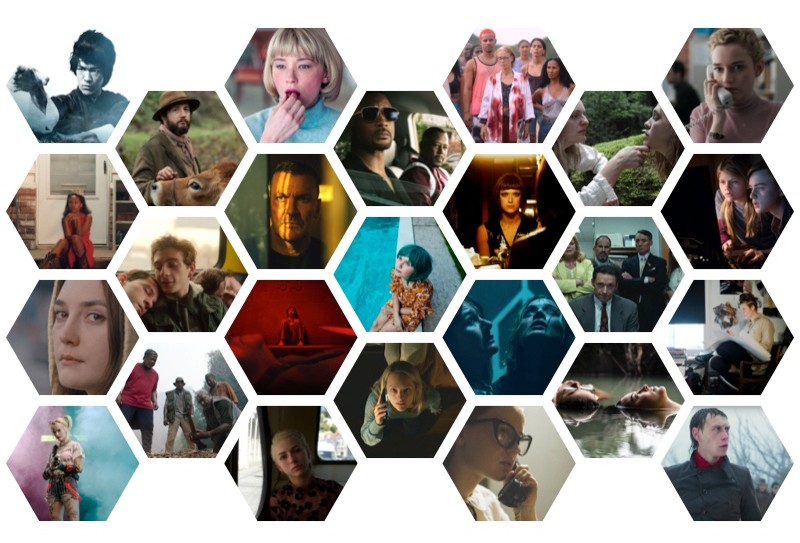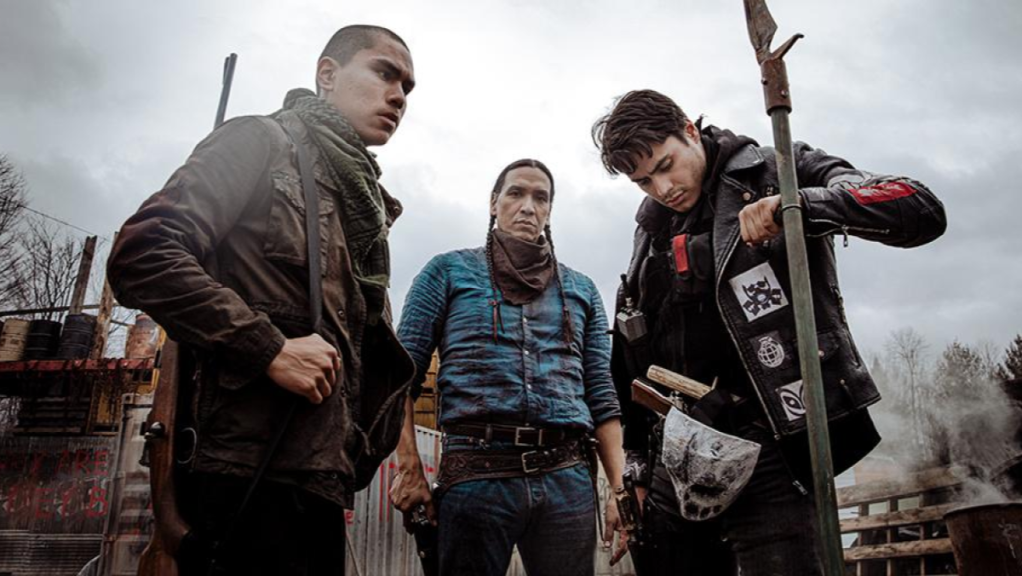2020: Review of the Year
2020 was a train wreck, and not the amusing Amy Schumer variety. Amidst a global pandemic and fluctuating lockdown, riots and contested elections, wretched negotiations and a profound desire to move to New Zealand, one of the great sources of comfort and inspiration was, of course, the movies! But cinemas were closed for months on end, forcing me, for the first time, to include online releases in my review of the year. Is this a Bombshell the scale of which were dropped in 1917? Are the Dark Waters of 2020 inducing Sea Fever beyond The Lighthouse? Or can we find a guiding Tenet or helpful Relic in His House, but watch out for The Invisible Man, he can be quite a Parasite.






The year began with awards season, which included some pleasing variety. The biggest movie news of the season was, of course, Parasite becoming the first international film to win Best Picture, which had me jumping for glee. Not that I necessarily rate Parasite as my film of the year, but it helped give the year a strong start alongside Jojo Rabbit, 1917, Bombshell and Queen & Slim.
The next month and a bit brought literally arty-farty fare, Dickens and Lovecraft adaptations rubbing shoulders with comic book action and horrors both fantastical and real (or not) life. Then lockdown rolled in like The Jesus and streaming became the norm.






Horror was well represented, from a tedious Psycho ripoff to a timely oceanic contagion, alongside resurrecting Richards and high school purgatory, while people trapped in single locations veered from the sublime to the ridiculous. More wild environments offered scares and snores, some exotic locations and ample gore. FrightFest offered some of the best and the worst of the year, including spaces both spooky and gory, some sinning, banishing and reckoning wobbles and some dreck.






Streaming services provided outlets for action and sci-fi, as well as opportunities for big name directors like Spike Lee and David Fincher as well as Pete Docter. Unexpected gems appeared with interesting names including Koko-di Koko-da and LX 2048, and my last two visits to the cinema gave me spectacle of the inverted and the nostalgic kind. But perhaps the biggest surprise of the year was a savage mockumentary featuring little dolls. Just goes to show, even in a year as restricted as 2020, the medium of film still manages to impress and delight.
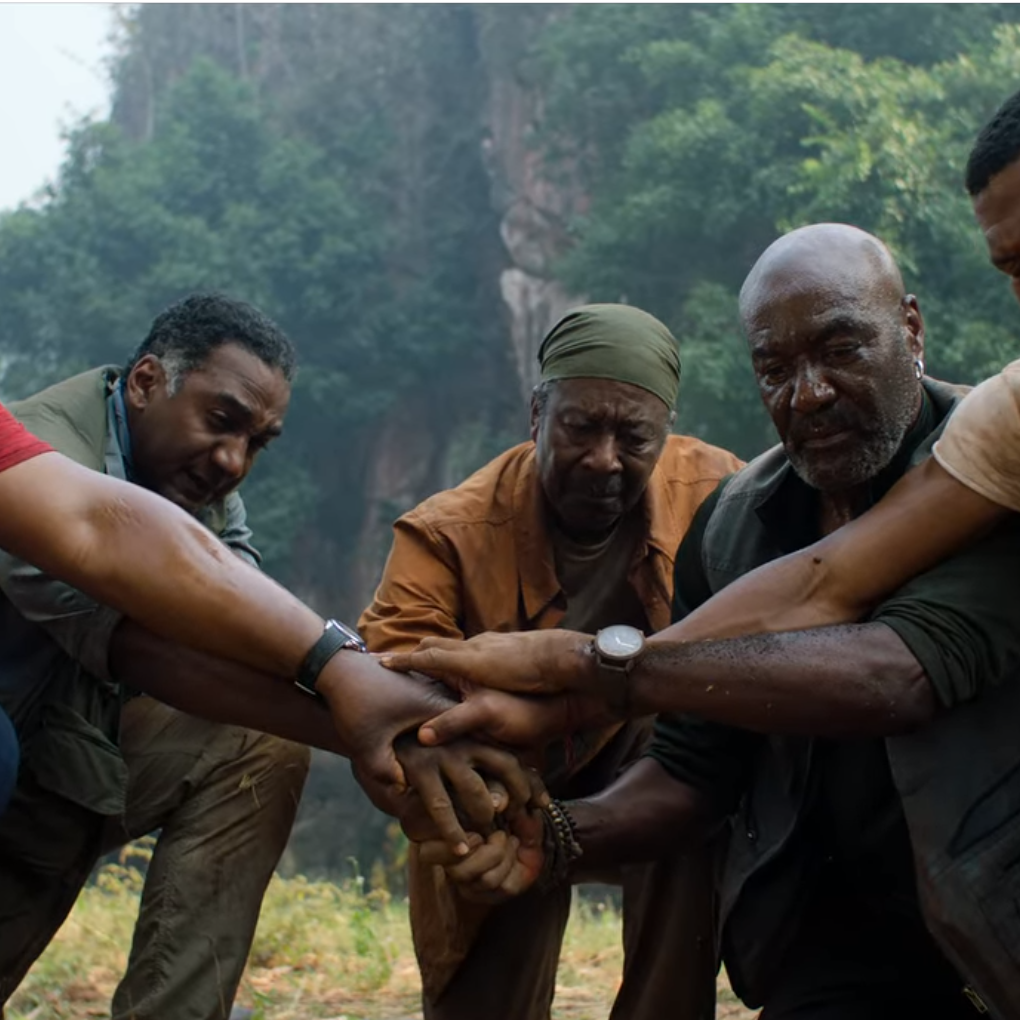





Drawn from this cinematic smorgasbord, here are my favourite films of 2020. As always, my top twelve of the year are based on UK release dates, and completely subjective.
On the twelfth day of Christmas
The movies gave to me
Twelve Manky screenplays
Eleven family Relics
Tenet inversions
Nine Invisible Men
Eight Vasts of Night
Seven Dollhouses
Six in His House
Five Kelly histories
Four jazzing Souls
Queen & Slim
Two Parasites
and one take through 1917.
1. 1917
An extraordinary, intense, visceral, immersive, brutal yet lyrical and at times eerily beautiful journey through hell on earth.
2. Parasite
A meticulously plotted, impeccably directed, ingeniously inventive suspense thriller/dark comedy of social satire, familial loyalty and the interconnections between us all.
3. Queen & Slim
A beautiful, lyrical, heartbreaking, extremely timely and utterly wonderful road movie of growing love, solidarity and community within inequality, oppression and unwanted notoriety.
4. Soul
A gorgeous, ingenious, moving, dazzling and sublime animated meditation on body and mind, music, mortality and the meaning of life.
5. True History of the Kelly Gang
A jagged, fragmented and striking drama of masculine identity, homosocial bonds and psychopathology in a deceptively expansive and toxic environment.
6. His House
An atmospheric, terrifying, heartbreaking, timely and utterly brilliant portrait of haunting, loss, asylum seeking and the struggle to belong.
7. Dollhouse: The Eradication of Female Subjectivity from American Popular Culture
An equal parts hideous and grotesque, hilarious and insightful satire on gender, discourse, hegemony and capitalism.
A beautifully assured, enthrallingly paced and wonderfully engaging blend of physical and social period detail, genre homage and innovation, long takes, jump cuts and the power of sound and communication.
A nerve-shredding, gut clenching and deeply affecting horror of gaslighting, terrifying negative space and the oppressive, predatory gaze of toxic masculinity.
10. Tenet
A massive, mind-frying, globe-skipping experiential adventure of espionage, ego and eruptions/inversions through space and time, that falters on scale but delivers with exhilarating pace.
11. Relic
An ominous, petrifying and mournful journey into creeping dread, generations, recriminations and acceptance.
12. Mank
A gorgeous, complex, scathing yet affectionate investigative portrait of creativity, conscience, historical artifice and the interweaving of entertainment and politics.
Honourable mentions
A striking, gripping and urgent tale of toxic masculinity, institutional oppression, the danger and the necessity of speaking out.
The Personal History of David Copperfield
A vibrant, beautiful, whimsical and metatastic romp of family, identity and owning one’s story.
A grim, oppressive nightmare of isolation, stark visuals, crashing sound and escalating madness.
Birds of Prey and the Fantabulous Emancipation of One Harley Quinn
A knowingly witty, deliriously scrappy, gloriously silly comic book crime action smack ‘em whack ‘em of breaking free and flipping the bird at convention.
Close Encounters of the Third Kind spliced with Annihilation blended with Evolution and filtered through The Thing equals a haunting, eerie and often terrifying sci-fi horror of family, body, spatial and mind fuckery.
A grim, dour, moodily lit and ominously atmospheric tale of corporate power, public victims and indomitable courage.
A genre-savvy and effectively atmospheric creature feature/infection thriller that uses the familiarity of its tropes to its advantage.
A visceral, intense, bone-crunching, bombastic and blistering bonanza of action, injury and loyalties.
A somewhat disparate and overdone but still powerful, stylish, timely and urgent drama of legacies racial, historical, familial, national, fiscal and traumatic.
An escalatingly sinister, consistently nasty and genuinely terrifying blend of home invasion, folk and body horror, with strong undertones of class and gender warfare.
A beautiful, intelligent and quite marvellous modern fairytale of identifying true love, living happily and the telling of stories.
Disappointments
An intermittently funny and nasty if blunt satire and thematically confused chase horror of mixed politics, creative kills and the dangers of social media.
A handsomely mounted and efficient if rather jarring and unconvincing transnational neo-noir/psychological horror.
The Dead Ones
A discordant, jarring and rather tasteless teen horror of adolescent angst, cyclical violence and convolution for the sake of convolution.
A limp and uninspired home invasion/surveillance horror of generic cliches, tiresome backstories and obvious recriminations, sorely lacking tension or relevance that literally falls off a cliff.
A garish, confused and awful muddle of genre tropes, wretched people and nonsensical ideas around fame, recriminations and stupidity.
Redwood Massacre: Annihilation
A potentially grim and gory survival slasher mushed clumsily inside an overly convoluted plot and stilted execution.
Turkey of the Year
An incompetent, joyless, clumsy, obvious and thunderingly stupid slasher that ruins possible homage with laboured and nonsensical plotting, inert direction, slopping editing, stilted dialogue, clunky transitions and an utter lack of tension, menace, scares and even a sense of fun.
Certainly a surprising year, and strangely more films than in previous years that I thought were pretty bad. But the good outweighs the bad, and bring on 2021 and all its movies, whenever they may arrive.

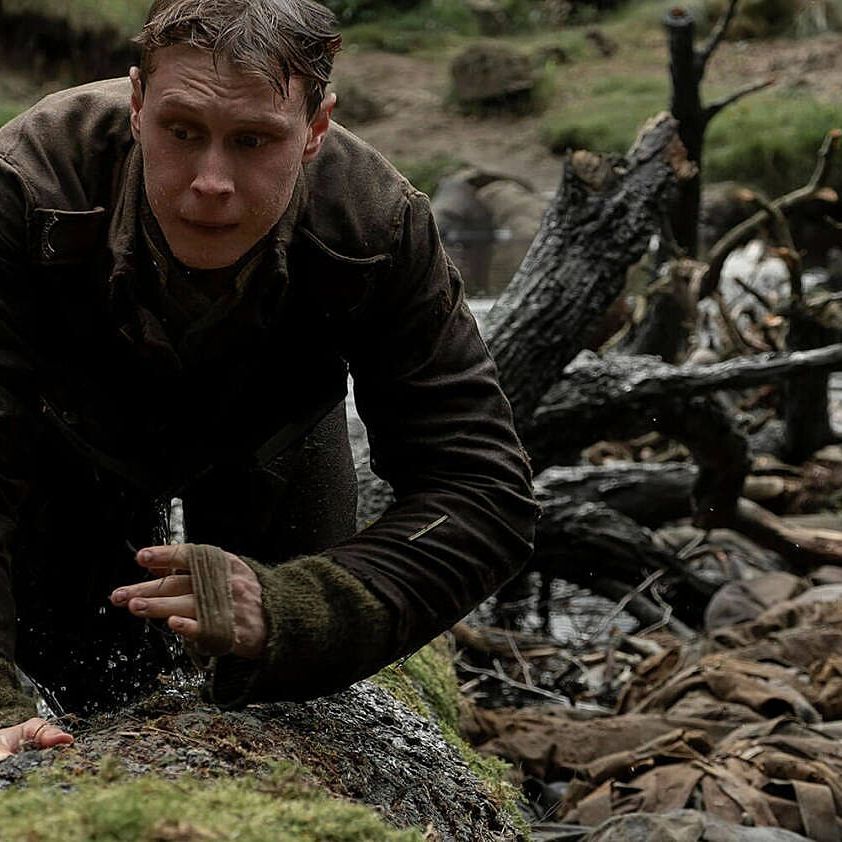




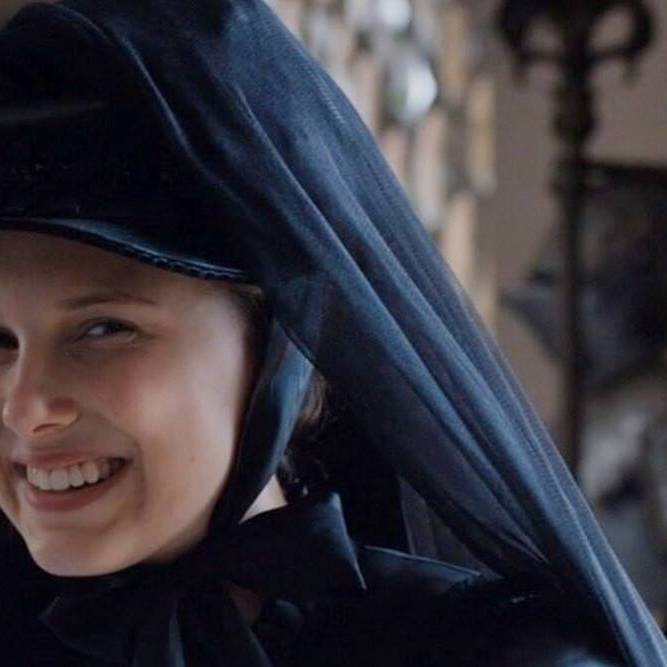





Godmothered
Disney have perfected the art of branding, first by establishing a brand and then consistently and skilfully deconstructing it. 2020’s direct to Disney+ release Godmothered demonstrates the House of Mouse’s understanding of their back catalogue, as an idealistic heroine seeks to achieve her destiny, and in doing so encounters ideas and beliefs different to her expectations thanks to the modern world, and yet still sprinkles enchantment wherever she goes. Our heroine is Eleanor (Jillian Bell), a trainee fairy godmother who seeks to grant wishes, and in doing encounters Mackenzie (Isla Fisher), a single mother who gave up on fairy tale endings long ago. Godmothered is essentially Enchanted with a fairy godmother instead of a princess and, like the earlier film, is filled with knowing humour, sparkling intelligence and buckets of charm. Director Sharon Maguire beautifully blends modernity with magic, offering new and relatable versions of true love and living happily, as well as the importance and practice of telling stories.
The Midnight Sky
The Midnight Sky is a sleek, shiny film that could be cold and distant. However, it is also an emotional and moving drama about isolation and connection. Director George Clooney takes influence from his longtime collaborator Steven Soderbergh, with the design, editing pattern and pacing of The Midnight Sky often reminiscent of Solaris. Clooney plays Augustine, a scientist alone in a polar research station in the aftermath of an unidentified global catastrophe. His only hope of communication is with the Aether, a space vessel returning from Jupiter’s moon K-23. The crew of this vessel Sully (Felicity Jones) along with Adewole (David Oyelowo), literally and unknowingly carrying the future of humanity with them. Clooney’s focus upon these isolated groups of characters are the film’s strongest elements, as Augustine’s mind and body start to fail him yet he pushes on. Despite their rigid protocol, the crew of the Aether are never less than warm and human. Some flashback elements as well as final act decisions make the overall result messy and uneven, but the film’s emotional core maintains a powerful grip throughout.
Onward
With Onward, Pixar demonstrates their ongoing combination of visual inventiveness with humour and emotion. Director Dan Scanlon weaves a literally mystical world, stacked with loving references to fantasy tropes such as perilous paths, elves and mages. But it is a far cry from The Lord of the Rings, as unicorns scavenge from dustbins and a manticore runs a family restaurant. Furthermore, it is a touching tale of two brothers learning about themselves and each other. Narratively, it’s pretty much stuff we’ve seen before, but is handled with such precision and élan that it never fails to delight. The film is ravishing in its visual design and there’s always something fun to pick out. If there’s magic to be found, it might look something like Onward.
Mank
Mank is a film of loving but never hagiographic homage. Shot in pin sharp monochrome and with titles that mimic those of the 1930s, David Fincher’s investigative portrait of screenwriter Herman ‘Mank’ Mankiewicz (Gary Oldman) dives into the complex bravado of classic Hollywood with the director’s trademark precision. Working from a screenplay by his father Jack, Fincher’s film is not to be taken as truth and indeed draws attention to its status as artifice and creation. This is appropriate as the narrative follows Mank’s creation of what would become Citizen Kane, interspersed with Mank’s encounters with Hollywood heavyweights including Louis B. Mayer (Arliss Howard), Marion Davies (Amanda Seyfried), David O. Selznick (Toby Leonard Moore) and, of course, William Randolph Hearst (Charles Dance) and Orson Welles (Tom Burke). This fragmentary structure echoes Fincher’s earlier work such as The Social Network and Gone Girl, as well as Kane itself. Like those films the storytelling is impeccable, as Trent Rezvor and Atticus Ross’ score blends with Kirk Baxter’s editing with an elegance comparable to Mank’s writing if not the man himself, a thoroughly sozzled protagonist who bumbles from one social embarrassment to the next. Oldman is electrifying in the lead role, he and the rest of the cast performing like characters from the 30s, and the film’s attention to artifice suggests that the personas we see are themselves performances and remnants of the real people are somewhere inside. This gives the film a bittersweet taste and, while much of it is humorous, come the end there is a genuine sense of pathos and indeed bathos for the balance between creativity with conscience.
Queen & Slim
Queen & Slim is one of the most beautiful and nuanced films about heartbreaking subject matter of recent years. Beginning with Slim (Daniel Kaluuya) and Queen (Jodie Turner-Smith) on a dull first date, events spiral out of control as soon as these two black people encounter a white police officer. The racial politics are threaded throughout the narrative, director Melina Matsoukas ensuring that the film never comes across as preachy. Rather, as our protagonists continue on their impromptu road trip, the people and scenarios they encounter express personal and social pain and inequality, while Queen and Slim learn more about themselves and each other. Solidarity, community, oppression and unwanted celebrity are interwoven brilliantly with a tender tale of hope, humanity and tragedy. Debut director Matsoukas shows a confidence and command of the cinematic medium that, after seeing Queen & Slim, you may want to watch it again immediately. Once you’ve finished crying, that is.
Koko-di Koko-da
Imagine if Groundhog Day involved murder and torture. Considering the inherent horror of having to repeat the same experiences, Koko-di Koko-da isn’t making a huge leap from the beloved 90s comedy. Director-writer Johannes Nyholm crafts an eerie and unsettling folk horror, where a couple already struggling with grief take a camping holiday. The distance between Tobias (Leif Edlund) and Elin (Ylva Gallon) is palatably genuine, even when their trip is interrupted, repeatedly and seemingly inevitably, by a mysterious and malevolent troop of carnivalesque characters. Immersive long takes draw the viewer into the desperate situation with an unflinching cruelty, until the haunting countryside takes on a life of its own and a deeper story is told through the use of shadow puppetry. To describe Koko-di Koko-da is to undersell it, but it delivers a powerful emotional blow and is well worth seeking out.
Enola Holmes
Enola Holmes could be seen as a standard period mystery, with a missing person, clues and an investigation. What makes it stand out as a sparkling romp is the smart and vibrant self-awareness, which never slips into being too clever for its own good. As the eponymous heroine, Millie Bobby Brown is a delight, dominating the screen with great command, both in terms of Enola’s interactions with her brothers Sherlock (Henry Cavill) and Mycroft (Sam Claflin), their mother Eudoria (Helena Bonham Carter) and the camera. Director Harry Bradbeer disregards the fourth wall from the opening, as Enola repeatedly addresses the audience, at one point even asking for advice! This highlighting of artifice oddly makes the film even more engaging, as it repeatedly invites the viewer along for the ride, letting us enjoy the anagrams and anachronisms even as Enola finds herself in increasingly perilous scrapes. For all the familiarity, Enola Holmes offers ample wit and originality to smile about.


